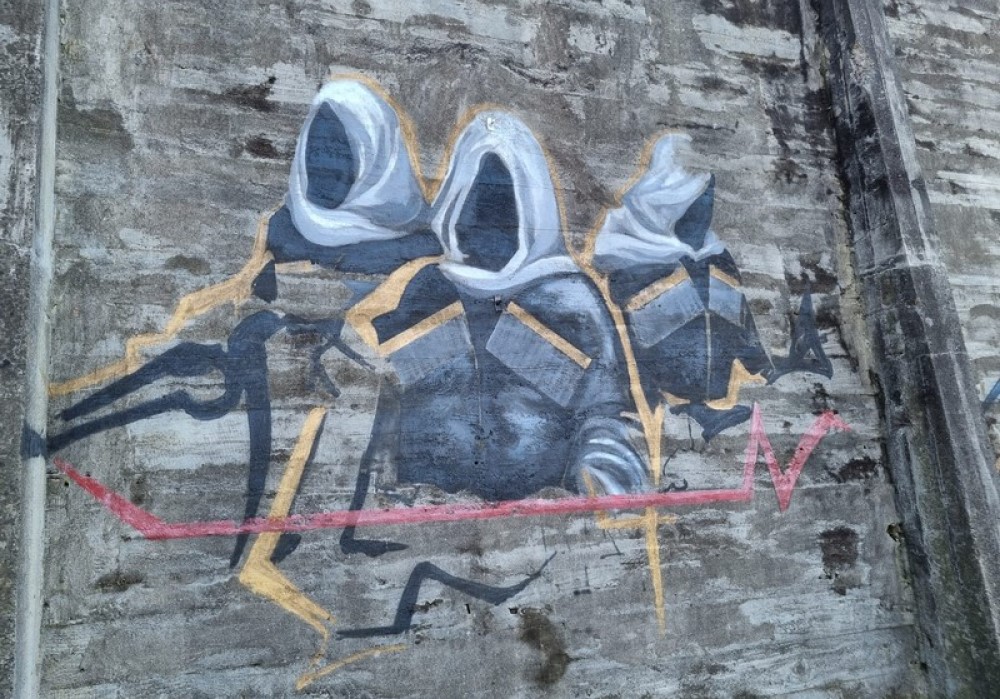Coronavirus has not reached Abkhazia — yet
Not a single case of coronavirus has been officially reported yet in Abkhazia. But it may be just a matter of time, since covid-19 has already been detected in the neighboring Russian Krasnodar Territory, and there are already 34 cases in Georgia.
As for preventative measures, only schools and daycares have been closed. All other institutions continue to work as usual.
Entry to Russia is restricted through the checkpoint on the Psou River for everyone except Russian citizens.
Across the Ingur River, on the Georgian side, traffic has almost completely halted. Only humanitarian aid workers are allowed through. One of them arrived on Saturday, March 14 with tests, masks and protective suits for doctors, and a thermal imager, which will be installed on the border with Russia.
All this equipment is being provided by international organizations
Specialists from the World Health Organization are expected to arrive with a second humanitarian aid group.
“Four WHO specialists are coming, and they are accompanied by special representative Louise Winton. They will evaluate the condition of the laboratories and the equipment in our hospitals, to determine whether we can cope with an outbreak of coronavirus,” said Astanda Pataraya, acting head of the Department for Interaction with International Organizations of the Ministry of Foreign Affairs of Abkhazia.
The Abkhaz Ministry of Foreign Affairs recommend that residents of the republic do not take private or business trips abroad. After all, even without the assessments of international experts, it is clear that the republic’s healthcare system will be unable to cope with treating coronavirus patients.
• Coronavirus epidemic in the Caucasus: facts and figures for the region. Updated
• Abkhazia’s only psychiatric hospital has nothing to treat or feed patients
No tests, very little specialized equipment, not enough doctors
In Abkhazia, there are no tests to detect coronavirus at all. It is expected that they will be delivered with the next international aid shipment. It is also reported that Russian specialists will also bring a certain number of tests, most likely by March 20.
Abkhazia is also facing an acute shortage of special equipment.
Hospitals have very few artificial respirators. In the Republican Hospital in Sukhumi, none of them are currently free.
There is not a single oxygenator, a device that enriches blood with oxygen, which has been shown to be effective in treating complications associated with COVID-19.
“We do not have enough doctors, to say nothing of infectious disease specialists,” says Angela Archelia, chief physician of Abkhazia.
In early March, Abkhazia created an operational office for the fight against coronavirus, consisting of the Minister of Health, a medical officer, and the heads of the Customs and State Migration Services, as well as the Minister of Foreign Affairs. They set up a hotline and a website, which is currently online.
The group is headed by acting president Valery Bganba.
On Facebook, many people were saying that Bganba held a meeting with entrepreneurs and asked them to purchase as much food as possible in case all of the borders are completely closed. Bganba, however, denied these reports.
There are no medical masks and hand sanitizers
Home visits are impossible in Abkhazia. If you get sick, you need to go to the clinic yourself. Doctors recommend visiting all medical institutions in medical masks. But the problem is, there is no place to purchase them.
“There are no masks and there never will be. Russia has banned the export of any masks or bandages from the country,” says pharmacist Jenny Hovhannisyan. “Management gives us masks, but we are unable to change them every two hours.”
There is also no hand sanitizer on sale.
“There won’t be any new supply coming in in the near future, all of the warehouses are already out of stock,” says Amanda Dzhugeliya, drug store.
Doctors say that you can use ordinary rubbing alcohol as a sanitizer.
“You can make a weak solution by dissolving a small amount of potassium permanganate in alcohol, and wipe your hands with it every two hours,” says Chief Medical Officer Lyudmila Skorik.
The doctor also advises pouring boiling water over all unpackaged products, especially fruits, vegetables and cheese, as suggests toasting all bread.
Cancel weddings and crowded funerals
Lyudmila Skorik believes that banning all public events is a necessary step. So far, only cultural and sporting events have been canceled, but Skorik believes that all weddings should be rescheduled for the summer or fall, and that attendance at funerals and memorial services should be limited to a small number of people.
The operational office also recommends that all employers exempt employees over the age of 60 from working while the quarantine is in effect.
Presidential elections
The government has not yet discussed postponing the presidential elections, which are scheduled for March 22.
Candidates are actively campaigning and meeting with voters, even outside of the territory of Abkhazia. There is no sense of panic among the population.



















